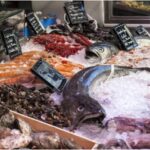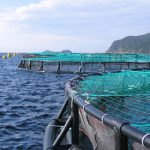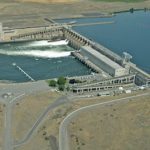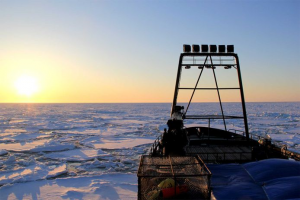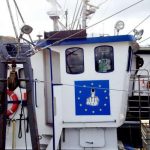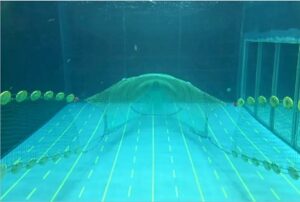Daily Archives: May 14, 2018
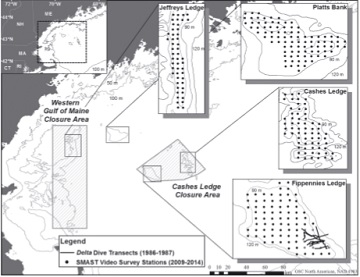
Estimating similarity in benthic communities over decades and in areas open and closed to fishing in the central Gulf of Maine
ABSTRACT: The ledges and banks of the central Gulf of Maine (i.e. Fippennies Ledge, Jeffreys Ledge, Cashes Ledge, and Platts Bank) have supported groundfish and Atlantic sea scallop fisheries for centuries. The benthic community of Fippennies Ledge was evaluated and compared during 2 time periods separated by more than 2 decades, the first based on a series of photographs collected during manned submersible dives conducted in 1986 and 1987 and the second using photographs collected during drop camera video surveys conducted in 2009 to 2014. >click to read<21:08
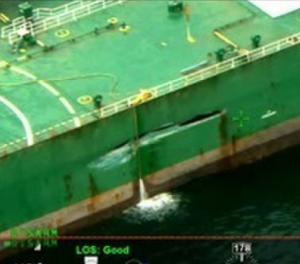
Coast Guard responds to report of collision between a fishing vessel and a tanker
The Coast Guard Sector New York is responding to a report of a collision at sea Saturday evening, involving the loaded tankship Tofteviken and the commercial fishing vessel Polaris. The collision allegedly occurred nearly 30 miles southeast of Bridgehampton, New York. The Tofteviken was transiting to New York while the Polaris was transiting back to its homeport in Massachusetts after a night of fishing. The Polaris, an 84-foot steel vessel built in 2007, suffered damage to its bow and outrigger. There were seven people aboard at the time of collision with no report of injuries. The vessel was able to return to its homeport safely. >click to read<20:10
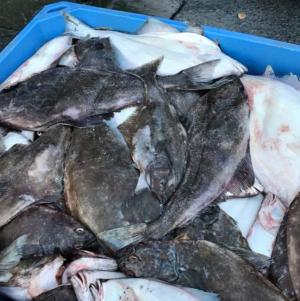
Halibut trash
Only in Alaska, which likes to claim title to the world’s “best-managed fisheries,” would halibut now retailing at prices in excess of $20 per pound be ground into fish meal to feed animals, shrimp and maybe even farmed salmon – the bane of Alaska commercial fishermen. Photos of halibut and other, trawl-caught bottomfish headed for the grinder emerged from Kodiak this weekend as Alaska fishermen started into a fishing season where the targeted harvest of halibut by both commercial fishermen and anglers has been seriously restricted because of conservation concerns. >click to read<18:20

The Age of Petty Tyrannies
“Whether the mask is labeled fascism, democracy, or dictatorship of the proletariat, our great adversary remains the apparatus—the bureaucracy, the police, the military. Not the one facing us across the frontier of the battle lines, which is not so much our enemy as our brothers’ enemy, but the one that calls itself our protector and makes us its slaves.,,,” We labor today under the weight of countless tyrannies, large and small, carried out in the name of the national good by an elite class of government officials who are largely insulated from the ill effects of their actions. We, the middling classes, are not so fortunate.,,, This is the mindset that tried to penalize a fisherman with 20 years’ jail time for throwing fish that were too small back into the water. John Yates, a commercial fisherman,,, >click to read<
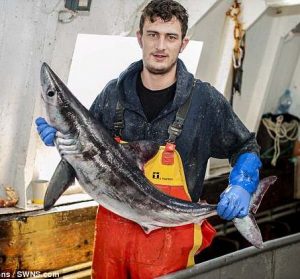
British fisherman, 21, is rescued by coastguard helicopter after being bitten by shark off coast of Cornwall
A young British fisherman has been airlifted to hospital with leg injuries after being bitten by a shark off the coast of Cornwall. The 21-year-old, named as Max Berryman, was bitten by the Porbeagle shark after it was hauled aboard a fishing boat yesterday morning. The crew of the Govenek of Ladram quickly sterilised and dressed his leg wound before asking HM Coastguard for medical assistance. The Coastguard search and rescue helicopter was then sent from Newquay to the 23m vessel, positioned about 120 miles from Land’s End. >click to read<13:17
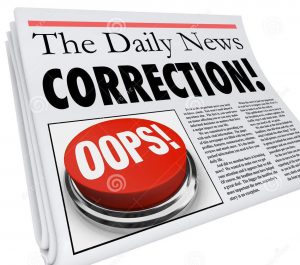
Correction: Lobster Shellshock-Q&A story
In a story May 13 about lobster shell strength, The Associated Press reported erroneously that marine biogeochemist Justin Ries attributed the collapse of the southern New England lobster fishery to shell disease. He attributed it to overfishing and population shifts caused by warming waters. A corrected version of the story is below: Lobster industry fears weaker shells, but evidence is mixed. The globalization of the American lobster business has spurred fears within the industry that lobsters’ shells are getting weaker, but scientific evidence about the issue paints a complicated picture. >click to read<11:24






































